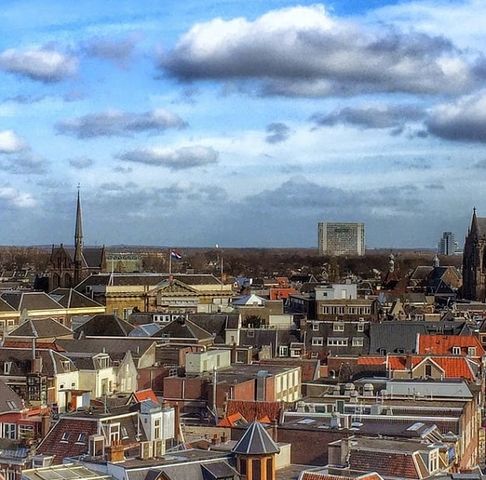Smart mobility, smart use of information and smart people: Eurofiber participates in national projects, equipping companies, cities and devices with high-quality digital infrastructure for the creation of a digital society. For example, we are partnering with Economic Board Utrecht and others on the Internet of Things initiative in the greater Utrecht area. We presented four questions to Heerd Jan Hoogeveen, domain manager for SMART (Services Innovation) with Economic Board Utrecht, about dealing with digitalization and the resulting consequences.
In what ways is the Economic Board Utrecht (EBU) supporting the smart city and region?
Hoogeveen: “Here at EBU, we believe that economic growth in the Utrecht region can be achieved by focusing on developing green, healthy and smart initiatives. This includes solutions that involve digitalization and smart mobility. To this end, we bring together governments, knowledge institutions and the business community and, where necessary, use our financial instruments to develop new initiatives and strengthen existing ones. Within the Smart domain, I focus on themes such as open data, big data, smart mobility and a healthy startup climate.”
“A great example of this is the Internet of Things, in which we brought together infrastructure parties such as Eurofiber and The Things Network in conjunction with Utrecht University of Applied Sciences. In the university courses, they can almost literally connect their students to the IoT network to develop solutions for healthcare institutions, for example.”
Smart mobility is a recurring theme. Why are developments in this area moving so fast now?
“One of the reasons for this, in my opinion, is the increasing pressure on the region: the number of households in the region will grow by 42% between now and 2050. This calls for solutions in areas such as air quality, waste management, health, but certainly also mobility. That cannot be solved simply by laying more asphalt; it also requires ICT solutions. At the same time, major technological developments are taking place. The self-driving car, for example: Just a few years ago, people were amazed at Google’s first self-driving cars. At that time, the expectation was that cars like that would not be on the road until around 2030. And they’re already out and about in 2017!”
“Eurofiber also follows these developments closely and plays an active role in the steering committee of the European Automotive Telecom Alliance. The companies in this alliance are facilitating plans to roll out a European network that will allow for self-driving cars on the road.”
Can you name an example in the city of Utrecht?
“A good example is the district development in Utrecht’s Merwedekanaal zone. Lots of new housing development will take place there in the next few years. The municipality is already considering its impact on the mobility of the entire city. For example, one of the prerequisites for keeping everything running smoothly is the creation of a digital infrastructure for the homes that will be built there.”
What does the digital transition mean in the workplace?
“We have observed that digital transition in society is also leading to the fact that virtually all employees will soon need to have some IT affinity. The digital transformation in the economy requires people with the right digital skills for almost every business and almost every job. In an alliance of government authorities, knowledge institutions and the business community, we are working on solutions to align employee skills more effectively with the demands placed on them.”
“In the shorter term, we are talking about retraining people, preparing them to fill ICT jobs. And in the longer term, we are developing initiatives for primary and secondary schools that will introduce children to ICT and computational thinking at an early stage. In that context, we also want to ensure that the curricula of secondary vocational education (MBO), higher professional education (HBO) and academic research universities (WO) are aligned more precisely with market demand. This also ties in well with Eurofiber’s initiative, “Smart City challenges for girls”, to get primary school girls excited about technology in the increasingly digital society. Digital transformation affects every organization and every employee, everywhere in the world. By responding effectively to that transformation, Utrecht and the Netherlands can turn this into an economic opportunity.”
Stay informed about all developments
You will receive the newsletter once a month.
